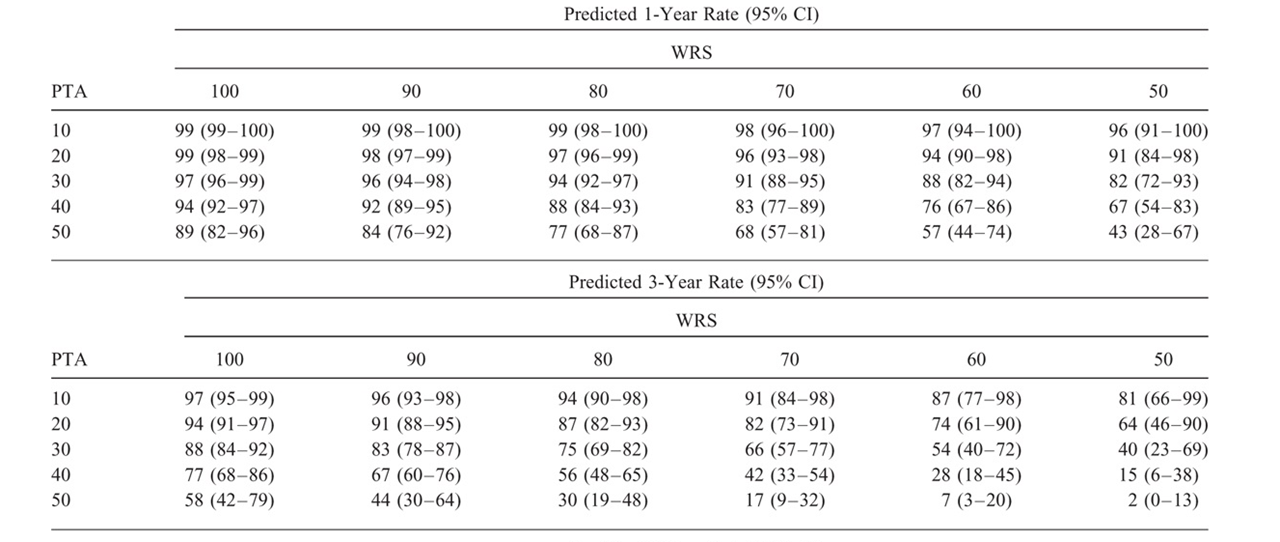I wish to recreate a table from a study (DOI: 10.1097/MAO.0000000000001914). The study includes survival analyses on whether or not patients loose their hearing. Hearing is described using two outcomes: PTApure-tone average hearing threshold (PTA) in decibels and WRSa standardized word-recognition score (WRS) in % recognized correctly. For hearing loss, a cut-off value isvalues are used to create a binary variable of "serviceable hearing." Hearing at baseline, however, differs, creating a potential selection bias. To account for this bias, this table is created. This table is described as using Cox predicted rates of maintainingloss of serviceable hearing, based on baseline hearing rates. It's looks like this:
My question is: how can I recreate this? Do you select a subgroup of patients that have this specific baseline (e.g. select all patients with a baseline PTA of <10 and a WRS between 90-100%, and consequently create a life table? ? I imagine there will be a lot of small groups (25!). Or is there any other technique, that is able to use more and potentially all your data for each estimation?
I work in R and use survfit and surv_summary to create the life tables.

